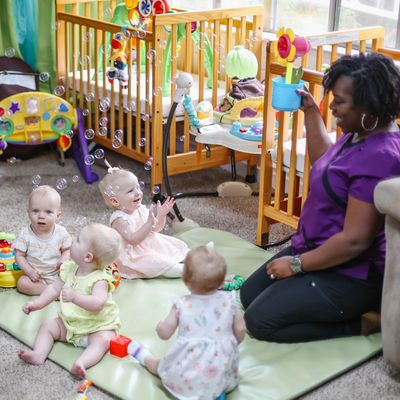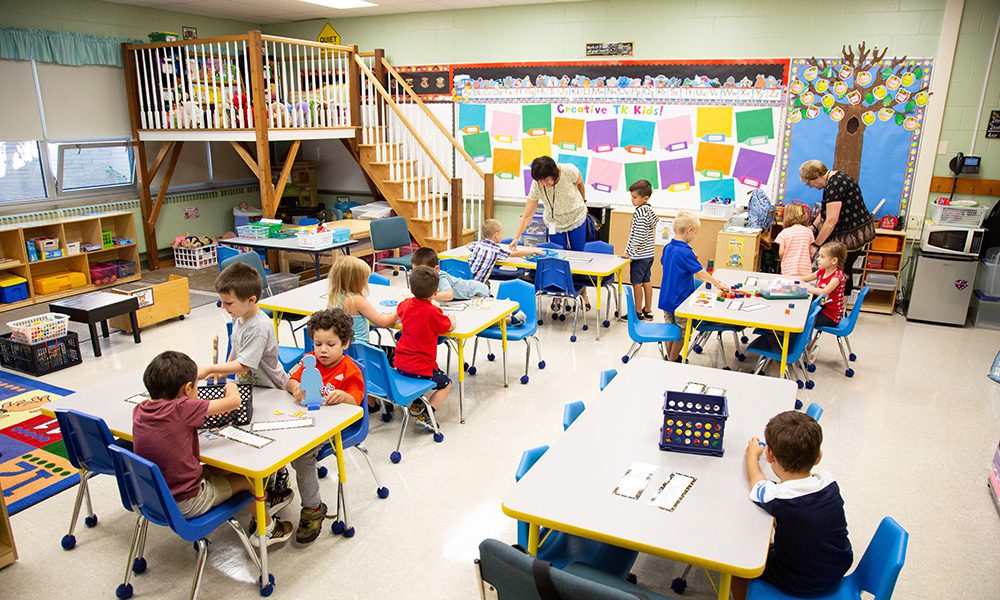How Private School educators use technology to modernize learning
Wiki Article
Everything About Elementary School: Crucial Realities and Improving Experiences for Youthful Learners
Grade school plays a critical role in shaping young learners' futures. It incorporates critical scholastic subjects and nurtures social abilities via structured interactions. Furthermore, after-school activities offer possibilities for creativity and teamwork. Parental involvement even more improves this structure, supporting youngsters in their scholastic journeys. As these aspects intertwine, they create a complete educational experience. However, what details approaches can teachers and moms and dads utilize to optimize this growth?
Comprehending the Quality College Educational Program
As students begin their grade college journey, they experience an educational program made to construct foundational abilities and expertise across different topics. This educational program typically includes core areas such as maths, language arts, scientific research, and social researches. Each subject is structured to cultivate critical thinking, imagination, and analytic capacities, crucial for future academic success.Language arts focus on reading, creating, and interaction skills, cultivating students' ability to reveal themselves clearly. Mathematics presents standard ideas, consisting of addition, subtraction, and later, multiplication and department, laying the foundation for more complicated analytic. Science motivates inquiry and expedition, igniting curiosity about the environment, while social studies instills an understanding of area and social variety.
Along with core topics, the curriculum commonly includes arts and physical education, giving a well-rounded academic experience that promotes both physical and intellectual development. Consequently, quality school functions as a vital system for lifelong discovering.

The Structure of Elementary School Education And Learning
While quality institution education and learning differs by area and organization, it usually adheres to an organized structure that promotes dynamic knowing. Usually, elementary school includes a variety of grades, typically from preschool through fifth or sixth quality, depending upon the educational system. Each quality level matches to specific developing turning points, with educational program created to build on anticipation.Classes are usually arranged right into core topics, consisting of mathematics, language arts, science, and social researches, making sure that trainees receive a well-rounded education and learning. Instruction commonly integrates straight teaching with hands-on activities, cultivating engagement and essential thinking.

Analysis techniques differ however normally consist of tests, tests, and projects to review trainee understanding. Additionally, instructors typically collaborate to create interdisciplinary systems, boosting the finding out experience. In general, the framework of quality institution education and learning intends to cultivate fundamental abilities, prepare students for future scholastic challenges, and promote a love for learning that prolongs beyond the classroom.
Social Abilities Development in Early Learners
Elementary school education and learning not only focuses on academic abilities however likewise plays a significant role in the growth of social abilities amongst early students. Throughout these developmental years, children take part in different activities that urge communication, cooperation, and communication with peers. Team tasks and cooperative learning settings offer opportunities for children to exercise sharing, bargaining, and settling conflicts.In addition, organized play promotes necessary abilities like compassion and understanding, as youngsters discover to identify and react to the feelings of others. Through assisted social interactions, our website instructors aid students create important listening and conversational skills. As children browse relationships and group dynamics, they acquire confidence in their social abilities.
The Function of After-school Activities
Extracurricular tasks play a significant role in enhancing the educational experience of quality college pupils by giving methods for personal development past the classroom. These activities enable pupils to explore abilities and interests, cultivating creative thinking and self-expression. Involvement in sporting activities, songs, art, and clubs grows team effort, leadership abilities, and a sense of belonging.Additionally, engaging in such activities promotes physical wellness and wellness, motivating students to keep an active lifestyle. Grade School. Extracurricular programs likewise offer as a platform for trainees to build relationships and create social skills, which are crucial for their overall development
As students navigate their rate of interests beyond academics, they get important experiences that add to their self-esteem and resilience. Inevitably, these activities play a crucial role fit well-rounded individuals, preparing them for future difficulties both in and out of the classroom.
Supporting Understanding With Adult Involvement
Adult involvement considerably enhances the instructional journey of elementary school pupils, as it fosters a helpful setting that enhances knowing. Engaged parents add to their children's academic success by participating in school events, aiding with homework, and maintaining open interaction with educators. Grade School. This participation not only enhances pupils' inspiration but likewise grows a feeling of belonging and self-confidenceResearch indicates that kids whose parents are proactively entailed have a tendency to have greater qualities, far better presence, and improved behavior in college. Additionally, parental engagement motivates the growth of crucial life abilities, such as time administration and duty.
Schools can promote this involvement by hosting workshops, offering sources, and encouraging routine comments. By producing partnerships between instructors and moms and dads, elementary school can assure an extensive technique to pupil advancement. Inevitably, parental involvement works as a foundation for fostering a positive academic experience, profiting both students and the institution area all at once.
Frequently Asked Questions
What Are the Common Grade Institution Hours for Pupils?
Typical quality institution hours for pupils normally range from 8:00 AM to 3:00 PM, varying by area. Numerous colleges integrate a lunch break and recess, ensuring pupils have time to charge during the day.Just How Do Grade Schools Address Diverse Learning Needs?
Grade colleges address diverse discovering demands via distinguished direction, tailored get redirected here lesson strategies, and assistance services, making sure reference all students obtain appropriate resources. Educators work together with experts to create inclusive atmospheres that cultivate individual development and engagement.What Is the Role of Innovation in Grade Institution Education And Learning?
Technology in quality school education improves finding out via interactive tools, personalized discovering experiences, and accessibility to vast resources. It promotes cooperation among instructors and pupils, preparing kids for a technology-driven future while sustaining varied educational requirements.How Can Parents Aid With Research Effectively?
Parents can aid with homework efficiently by developing an organized setting, urging freedom, giving sources, and providing assistance without directly giving solutions. Communication with teachers additionally boosts understanding of expectations and promotes scholastic success.What Are Usual Challenges Faced by Quality College Pupils?
Common challenges encountered by elementary school trainees include trouble with time management, understanding complex principles, keeping emphasis during lessons, steering social characteristics, and stabilizing scholastic responsibilities with extracurricular tasks, every one of which can influence their general performance.As pupils begin their grade college journey, they encounter an educational program developed to construct foundational abilities and expertise across numerous subjects. Generally, quality college includes an array of qualities, frequently from kindergarten through 5th or sixth quality, depending on the academic system. Extracurricular activities play a significant role in enhancing the academic experience of grade school students by supplying avenues for personal development past the classroom. Adult involvement substantially enhances the educational journey of quality college pupils, as it cultivates a supportive environment that reinforces learning. By producing collaborations in between moms and dads and teachers, grade colleges can assure a thorough approach to pupil advancement.
Report this wiki page